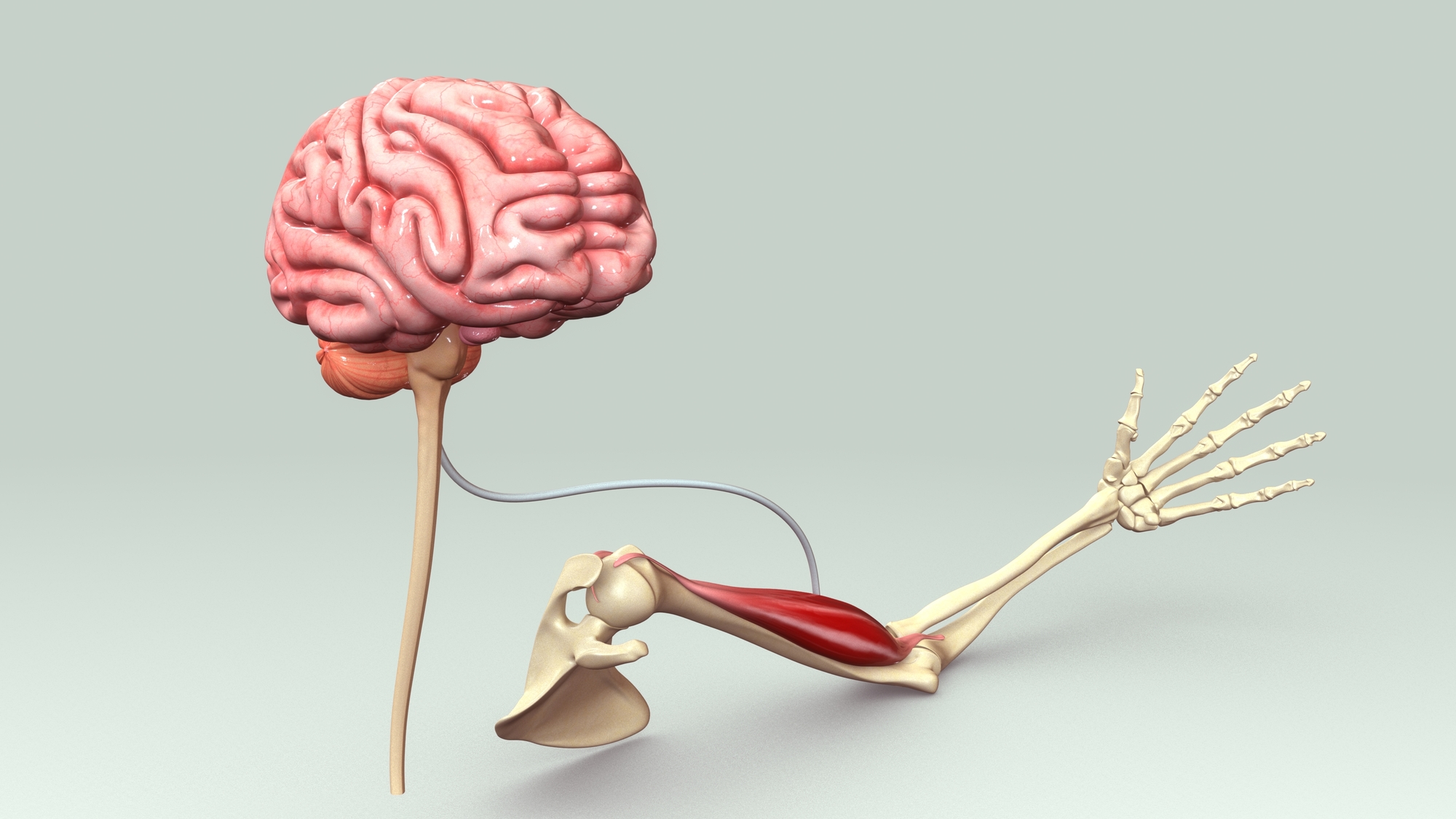The Link Between Muscle Mass and Cognitive Health as We Age
January 24, 2024

As we get older, many of us focus on keeping our minds sharp and agile, which is important. However, here is a little information that many of you may have never considered. Maintaining a healthy brain lies not just in mental exercises and puzzles but also in keeping our physical strength.
You may have heard (and felt) the amazing effects on mood after strength training due to the dopamine that is released post-workout. Strength training significantly improves our mental health in the present, but now it is being revealed how this training can pay massive dividends in the future.
Recent research has been shedding light on an intriguing connection: having less muscle mass as we age could make us more vulnerable to cognitive decline.
Muscles and Mind: A Surprising Connection
Let’s start with a basic understanding of how muscles and the brain interact. Traditionally, muscles are known for their role in movement and physical support, but their impact goes much deeper. Muscles release various substances that communicate with other parts of the body, including the brain. Your muscles are constantly sending out signals and information to the rest of the body.
As we age, it’s common to lose some muscle mass – a condition known as sarcopenia. But here’s where it gets interesting: research suggests that the decline in muscle mass is linked to reduced cognitive function. In simpler terms, as our physical strength wanes, so might our mental sharpness.
The Science Behind the Muscle-Mind Link
Studies have shown that muscle tissue produces certain proteins and hormones that are beneficial for brain health. These substances can help to reduce inflammation and oxidative stress, both of which are enemies of a healthy brain. They also play a role in the growth and survival of neurons, the cells that make up our nervous system.
When muscle mass decreases, there is the potential for a decline in cognitive functions such as memory, attention, and problem-solving skills.
Real-Life Implications
As you age, maintaining muscle mass isn’t just about being able to lift heavy objects or excel in sports. It’s about safeguarding your brain’s health and functionality. This connection highlights the importance of a holistic approach to aging – one that includes both mental and physical health.
For example, an older adult who stays physically active and engages in strength training may not only enjoy better physical health but also a sharper mind. On the other hand, someone who leads a more sedentary lifestyle and experiences significant muscle loss might be at a higher risk for cognitive decline.
The old saying “use it or lose it” applies not just to our mental faculties but to our physical strength as well. By maintaining muscle mass through regular physical activity and strength training, we’re not just supporting our bodies; we’re also giving our brains a fighting chance against the ravages of time.
Share This Story, Choose Your Platform!
The Link Between Muscle Mass and Cognitive Health as We Age
January 24, 2024

As we get older, many of us focus on keeping our minds sharp and agile, which is important. However, here is a little information that many of you may have never considered. Maintaining a healthy brain lies not just in mental exercises and puzzles but also in keeping our physical strength.
You may have heard (and felt) the amazing effects on mood after strength training due to the dopamine that is released post-workout. Strength training significantly improves our mental health in the present, but now it is being revealed how this training can pay massive dividends in the future.
Recent research has been shedding light on an intriguing connection: having less muscle mass as we age could make us more vulnerable to cognitive decline.
Muscles and Mind: A Surprising Connection
Let’s start with a basic understanding of how muscles and the brain interact. Traditionally, muscles are known for their role in movement and physical support, but their impact goes much deeper. Muscles release various substances that communicate with other parts of the body, including the brain. Your muscles are constantly sending out signals and information to the rest of the body.
As we age, it’s common to lose some muscle mass – a condition known as sarcopenia. But here’s where it gets interesting: research suggests that the decline in muscle mass is linked to reduced cognitive function. In simpler terms, as our physical strength wanes, so might our mental sharpness.
The Science Behind the Muscle-Mind Link
Studies have shown that muscle tissue produces certain proteins and hormones that are beneficial for brain health. These substances can help to reduce inflammation and oxidative stress, both of which are enemies of a healthy brain. They also play a role in the growth and survival of neurons, the cells that make up our nervous system.
When muscle mass decreases, there is the potential for a decline in cognitive functions such as memory, attention, and problem-solving skills.
Real-Life Implications
As you age, maintaining muscle mass isn’t just about being able to lift heavy objects or excel in sports. It’s about safeguarding your brain’s health and functionality. This connection highlights the importance of a holistic approach to aging – one that includes both mental and physical health.
For example, an older adult who stays physically active and engages in strength training may not only enjoy better physical health but also a sharper mind. On the other hand, someone who leads a more sedentary lifestyle and experiences significant muscle loss might be at a higher risk for cognitive decline.
The old saying “use it or lose it” applies not just to our mental faculties but to our physical strength as well. By maintaining muscle mass through regular physical activity and strength training, we’re not just supporting our bodies; we’re also giving our brains a fighting chance against the ravages of time.


